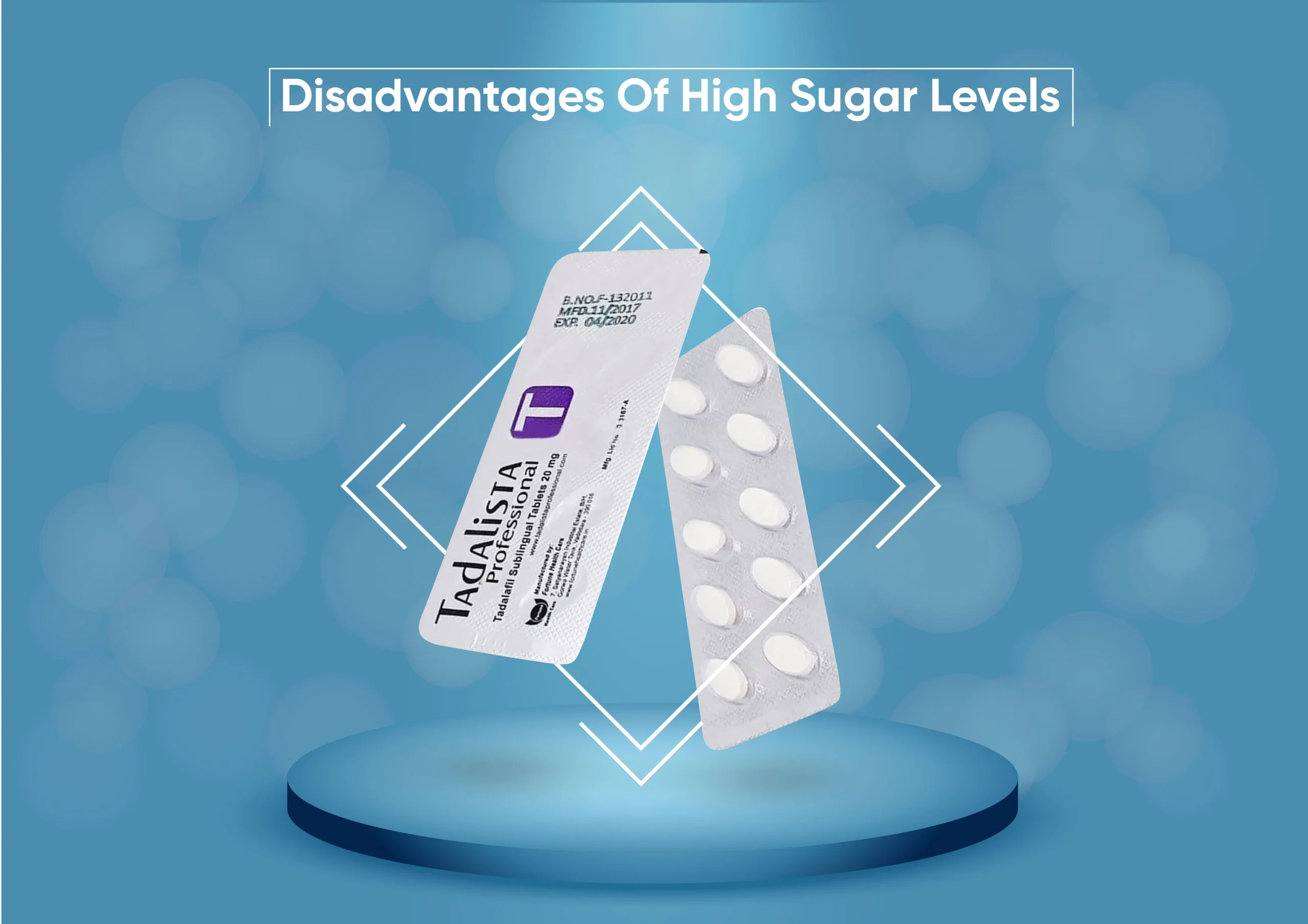High sugar consumption, particularly in the form of added sugars, has been linked to an increased risk of heart disease and stroke. Here’s how:
High Blood Sugar Levels
When we consume high amounts of sugar, our blood sugar levels rise. This triggers the release of insulin, a hormone that helps transport glucose from the bloodstream into the body’s cells for energy. Over time, high blood sugar levels can lead to insulin resistance, a condition in which the body’s cells become less responsive to insulin. This can cause the pancreas to produce more insulin, leading to even higher blood sugar levels. This chronic elevation in blood sugar can damage blood vessels and increase the risk of heart disease and stroke.
Obesity And Metabolic Syndrome
Consuming high amounts of added sugar can contribute to weight gain and obesity, which are major risk factors for heart disease and stroke. It can also lead to the development of metabolic syndrome, a cluster of conditions that includes high blood pressure, high blood sugar, high triglycerides, low HDL (“good”) cholesterol, and abdominal obesity. Metabolic syndrome can increase the risk of heart disease and stroke.
Inflammation
High sugar consumption can also contribute to chronic inflammation in the body. This can damage blood vessels and increase the risk of heart disease and stroke. Inflammation is also linked to insulin resistance and metabolic syndrome.
Blood Lipids
Consuming high amounts of added sugar can also raise levels of triglycerides, a type of fat in the blood. High levels of triglycerides can contribute to the buildup of plaque in the arteries, which can lead to heart disease and stroke.
Insulin Resistance
As mentioned earlier, high blood sugar levels can lead to insulin resistance, a condition in which the body’s cells become less responsive to insulin. This can cause the pancreas to produce more insulin, leading to even higher blood sugar levels. Insulin resistance is associated with an increased risk of heart disease and stroke.
It is important to note that not all sugars are created equal. Natural sugars found in whole foods like fruit and dairy are not typically a concern for heart health, as they are consumed in the context of a nutrient-dense diet. The biggest concern is with added sugars, which are found in many processed and packaged foods. According to some study limiting added sugars to no more than 6 teaspoons (25 grams) per day for women and 9 teaspoons (36 grams) per day for men.
Heart disease and stroke are two of the leading causes of death worldwide. There are many factors that contribute to the development of these conditions, including:
High Blood Pressure
High blood pressure, also known as hypertension, is a major risk factor for heart disease and stroke. It can cause damage to blood vessels over time and increase the risk of heart attack and stroke.
High Cholesterol
High levels of LDL (“bad”) cholesterol in the blood can contribute to the buildup of plaque in the arteries, which can lead to heart disease and stroke.
Diabetes
People with diabetes are at increased risk of developing heart disease and stroke. High blood sugar levels can damage blood vessels over time, increasing the risk of heart attack and stroke.
Obesity
Being overweight or obese can increase the risk of heart disease and stroke. It can contribute to high blood pressure, high cholesterol, and diabetes.
Lack of Physical Activity
Physical inactivity can increase the risk of heart disease and stroke. Regular exercise can help lower blood pressure, improve cholesterol levels, and maintain a healthy weight.
Unhealthy Diet
A diet high in saturated and trans fats, salt, and sugar can increase the risk of heart disease and stroke. Eating a healthy diet that is rich in fruits, vegetables, whole grains, and lean protein can help reduce the risk.
Family History
People with a family history of heart disease or stroke are at increased risk of developing these conditions.
Age and Gender
The risk of heart disease and stroke increases with age. Men are at higher risk of heart disease than women, but the risk of stroke is similar for both genders.
By making healthy choices and working with a healthcare provider to manage existing conditions, it is possible to reduce the risk of heart disease and stroke.
Conditions such as heart disease and stroke might increase the risk of impotence, so it is advisable to take the help of Tadalista Professional.

